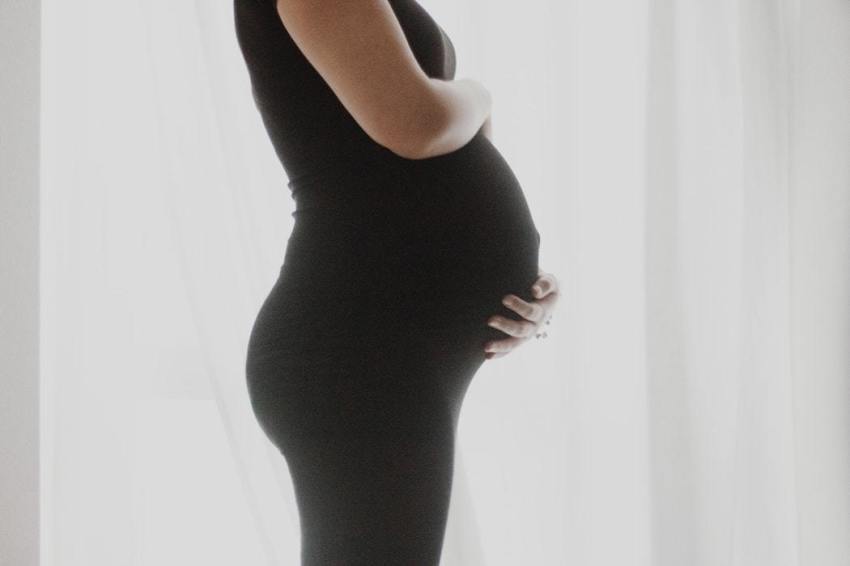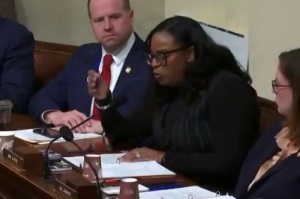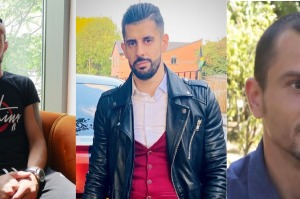Surrogate mother felt like a 'rented uterus' after cancer diagnosis, pressured to abort

A California woman contracted by a gay couple to carry their baby said she felt like a "rented uterus" after the pair learned about the surrogate's cancer diagnosis and wanted her to have an abortion.
A woman named Brit explained in an interview with Center for Bioethics and Culture Network President Jennifer Lahl posted to YouTube on Saturday that she received a breast cancer diagnosis in May when she was 24 weeks pregnant with the couple's baby.
The mother of four served as a surrogate before and decided to act as a surrogate a second time because there were no issues with her first surrogacy experience.
Appearing alongside her sister Courtney for the interview, Brit said that her doctor discovered a lump on her breast during an appointment. The biopsy results came back positive for breast cancer the following week.
"So, she sent me, obviously, to oncology, and we kind of started that process of registering that I have cancer while pregnant," she said. "I made it very clear to my OB, my oncology team, and the agency that my main focus was making sure that I can continue the pregnancy and that the baby would be OK."
At the time, Brit's oncology team confirmed that it would be safe for her to continue the pregnancy if she underwent certain chemotherapy treatments. However, there were some drugs the doctors could not provide Brit until after the delivery.
When asked if she told the fathers about the diagnosis, Brit said that she contacted her surrogacy agency, which then informed the couple that she had cancer.
Brit remembered that the two dads were "scared, worried" and wanted updates from Brit's doctors. She claims they insisted that her oncology team speak with them on a weekly basis, which she found "intrusive."
Despite promising to relay information to them as she learned more about her condition, the gay couple continued contacting the medical team and "threatening lawsuits" against various people involved, including her oncology team.
The pressure "spooked" Brit's oncology team, who told her that they would seek legal help because they were unsure if they could offer the woman chemotherapy without permission from the dads.
"I felt like just a rented uterus," she said. "I felt like they only cared about their baby, which I expect them to care about their baby. I obviously cared because I didn't want anything to happen to the baby either. But they didn't care. I felt like they didn't care about me at all."
An MRI eventually revealed that the cancer had spread, and the option of undergoing chemotherapy that wouldn't harm the pregnancy was no longer available.
The gay couple rejected the option of delivering the pregnancy early, according to Brit, as they wanted the baby aborted instead. Lahl asked Brit why, and she explained that the fathers had heard that even a baby born at 34 weeks may have disabilities or "no chance at life."
Brit countered this view by noting that she had previously had twins at 34 weeks who are now "incredibly healthy" at toddlers.
Brit found the dads' insistence that their child had no chance "mind-boggling," with the fathers rejecting the idea of allowing someone else to raise the baby through adoption, as they didn't want "their DNA out there."
"They wanted nothing," Brit said. "They just wanted their baby's remains and to move on with life. Which I would never have chosen."
The young woman found a hospital that would induce labor early, giving birth on Father's Day at 25 weeks. The baby died shortly after the delivery, and the two men opted to have the child cremated.
Brit is still undergoing cancer treatment.
In an op-ed published last week, Lahl highlighted the case as an example of the issues surrounding surrogacy and the commercialization of pregnancy.
"We see competing interests in medical care between the mother and the baby being directed by the purchasing parents and not the physician," Lahl wrote. "The mother wanted to try and deliver early in hopes of saving the baby and being allowed to start her cancer treatment in hopes of saving her life."
"But California law recognizes the contracting intended parents in surrogacy arrangements as the legal parents," she continued. "They alone can make decisions around the care of the baby. In this case, refusing care."
"The rights of the mother to direct her own care are undermined, not even allowing her to advocate for her own needs and the needs of the baby she's about to deliver."
In April, it was reported that 68-year-old Spanish actress Ana Obregón hired an American surrogate to give birth to her granddaughter following the death of her son to cancer.
"This girl is not my daughter, but my granddaughter," she said, according to a translation from Today. "She is the daughter of Aless, and when she grows up, I will tell her that her father was a hero so that she knows who she is and how proud she has to be of him."
"I don't think there is anyone in the world when they see this beautiful girl — who was so desired by her father from Heaven and by me on earth and by all those who love me — will not think the same way. It is something that only fathers or mothers who have lost a child will perfectly understand."
Samantha Kamman is a reporter for The Christian Post. She can be reached at: samantha.kamman@christianpost.com. Follow her on Twitter: @Samantha_Kamman



























